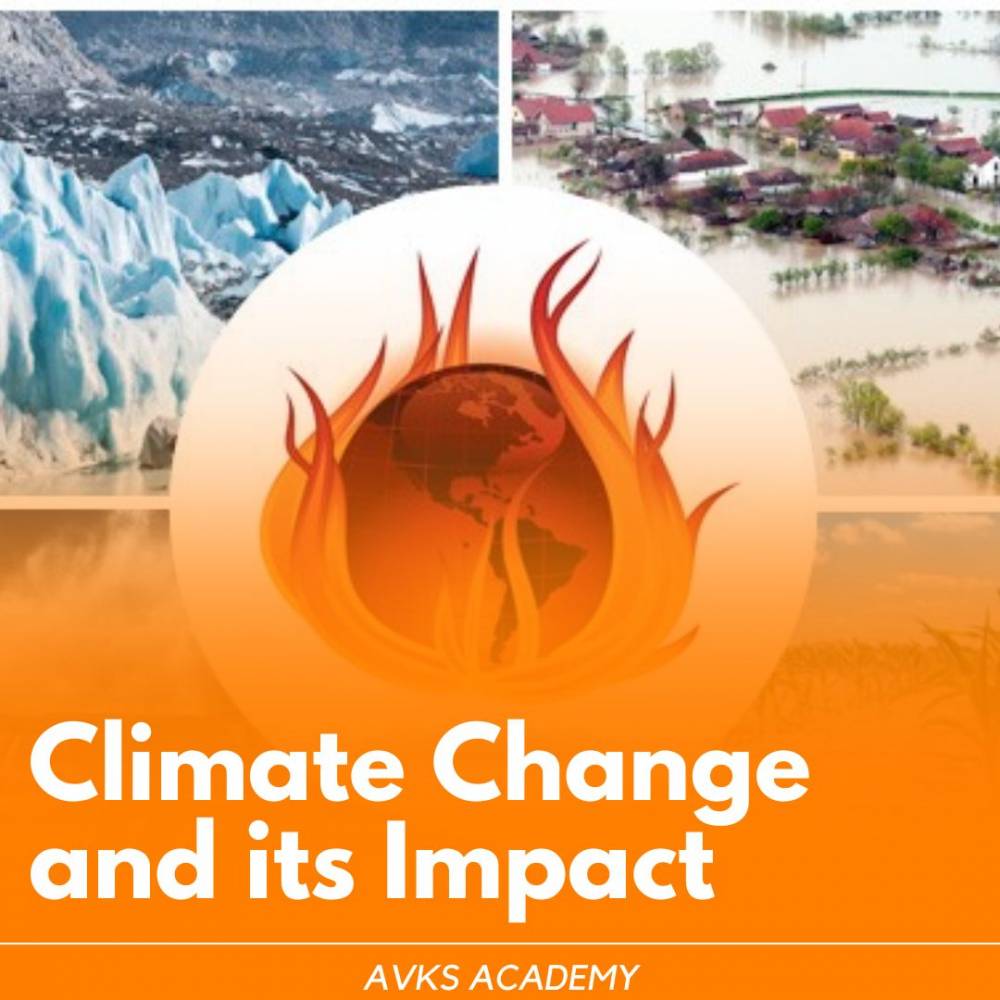-
Admin
- 23 November 2023
Sample Essay on "Climate Change and its Impact on India".
In the delicate dance between nature and civilization, India finds itself entwined with the complexities of climate change. From the verdant fields to the bustling coastal cities, the impact is palpable, shaping the contours of our daily lives. The once-predictable rhythm of seasons has given way to a discordant tune, testing the resilience of farmers in the heartlands and challenging the very foundations of coastal communities. Yet, amidst the challenges lie opportunities for collective action, beckoning us to forge a sustainable path forward. In the face of a changing climate, the imperative is not just to adapt but to coalesce in a global symphony of resilience, where each note resonates with the commitment to safeguard our shared home.

Introduction:
Climate change is a global phenomenon with far-reaching consequences, and India, as one of the most populous and diverse countries, is significantly affected. The changing climate patterns, characterized by rising temperatures, erratic rainfall, and extreme weather events, pose substantial challenges to India's socio-economic fabric.
Main Body:
The foremost impact of climate change in India is evident in its agriculture sector, which remains the backbone of the country's economy. Unpredictable monsoons and altered precipitation patterns have led to increased instances of droughts and floods, severely affecting crop yields. Farmers, particularly in vulnerable regions, face the daunting task of adapting to these changing conditions to ensure food security.
Another critical concern is the rising sea levels, impacting the vast coastal regions of India. Low-lying areas, including major metropolitan cities, are at risk of submersion, threatening the livelihoods of millions and necessitating comprehensive urban planning strategies. The loss of biodiversity is also a consequence, affecting ecosystems and the delicate balance of various species.
Moreover, climate change exacerbates existing socio-economic disparities. Marginalized communities, often dependent on climate-sensitive sectors, bear the brunt of these changes. Access to resources, health facilities, and educational opportunities becomes even more challenging in the face of extreme weather events.
On a broader scale, climate change contributes to global warming, leading to a myriad of environmental challenges. The melting of Himalayan glaciers poses a threat to the major river systems, affecting water availability for agriculture and consumption. The increased frequency and intensity of cyclones and hurricanes in coastal areas demand robust disaster management strategies.
Conclusion:
In conclusion, climate change is not a distant threat but an immediate and pervasive challenge that requires urgent and coordinated action. India, with its diverse geography and socio-economic landscape, must prioritize sustainable practices, invest in renewable energy sources, and implement adaptive measures to mitigate the adverse impacts of climate change. Global cooperation is equally imperative to address the root causes and collectively build a resilient future. The responsibility to safeguard the environment and secure a sustainable future rests on the shoulders of governments, communities, and individuals alike. Only through concerted efforts can we hope to mitigate the impact of climate change and ensure a habitable planet for future generations.
Discover Excellence at AVKS ACADEMY
Visit our website : AVKS Academy One of the Leading Insitute for UPSC CAPF Exam Preparation in India.
or contact us today to embark on your journey to greatness. Your success story begins here!"
Contact : 7093777494 , 7404460797
TELEGRAM : https://t.me/avksacademycapfac
INSTAGRAM : https://instagram.com/avkscapf?igshid=MzRlODBiNWFlZA==

